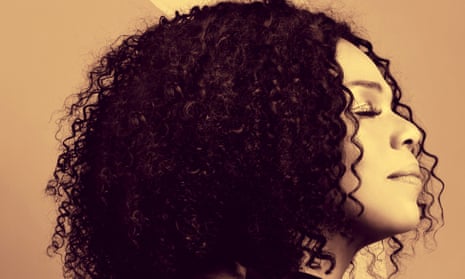Desiree Burch is out of the traps at a gallop in her new show: the first 10 minutes all but pin you to the back of the auditorium. This is her story of a day at the Burning Man festival in Nevada, a hallucinogenic odyssey with 40-year-old Burch in pursuit of sex, truth to herself and … well, what exactly? At first, the storytelling is so explosive, I couldn’t have cared less what it was getting at. But its hell-for-leather energy can’t quite sustain, and one starts scoping for a meaning that proves elusive.

It has something to do with eugenics. Cutting away from her hair-raising tale of festival excess, Burch relates a brief history of IQ tests: how they were designed to support but later segregated the “feeble-minded”, a category that in the US came with a heavy racial bias. You expect closer connections to emerge between California’s ban on IQ tests for black people and the narcotic adventures of Desiree Burch, sucking penis-shaped popsicles in the desert, re-enacting scenes from Get Out in a whites-only sauna and getting groped in a bar.
But – even at the end, when Burch tries to graft the strands together – connective tissue doesn’t form. By that time, the suspicion has arisen that her anecdote’s frenzied delivery is there partly to conceal its lack of major incident. However brilliantly told, it’s always just someone else’s LSD trip. Which culminates in a sweat-soaked Burch reflecting – apropos of not very much – on the patterns we get stuck in and how we project our desires on to others.
That leaves less of an impression than the blistering opening, which includes a hilarious encounter with a long-lost friend, cast as Moses to Burch’s Jesus. (“We’re not even supposed to be in the same testament right now!”) One or two standalone routines – on Michael Jackson and fallen idols; on the “magical negro” trope – likewise linger in the mind. Is there more matter crammed into this hour than many comics communicate in a decade? There is. Will you enjoy the ride? Highly likely. Does the show hang together? Not quite, no.

Comments (…)
Sign in or create your Guardian account to join the discussion